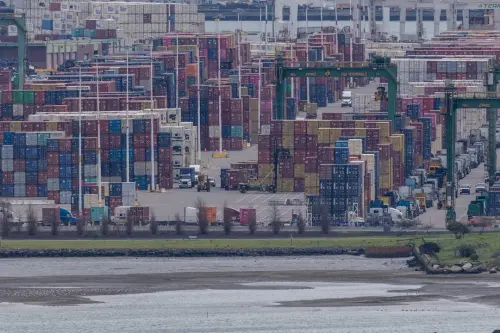In Washington on February 25th, President Trump escalated his trade agenda, initiating an investigation into potential tariffs on copper imports. The aim is to boost U.S. production of this critical metal essential for electric vehicles, military equipment, the power grid, and various consumer goods.
To counter what his advisors perceive as China's dominance in the global copper market, President Trump signed an order for Commerce Secretary Howard Lutnick to conduct a national security investigation using Section 232 of the Trade Expansion Act of 1962. This tactic echoes his previous imposition of 25% tariffs on steel and aluminum.
Preferring tariffs over quotas, Trump's administration stressed that the potential tariff rate will be determined after the investigation. This move is part of Trump’s broader strategy to challenge longstanding free trade practices, targeting not only traditional allies like Canada and Mexico but also strategic competitors like China.
Despite initial market optimism following Trump's re-election, his tariff decisions have begun impacting consumer confidence negatively. The recent drop in consumer confidence, paired with Wall Street’s four consecutive days of decline, reflects growing uncertainty surrounding Trump's trade policies.
Nevertheless, certain companies like Freeport-McMoran have seen their stocks rise due to the news. Conversely, London-based Antofagasta remained silent on the matter due to ongoing regulatory issues in the U.S.
Trump aims to deregulate businesses to stimulate economic growth, with trade adviser Peter Navarro emphasizing the swift completion of the investigation, dubbed as "in Trump time."
Pointing to China's market tactics, Navarro highlighted the use of subsidies and excess capacity to gain control over global copper production. The main countries likely to be impacted by U.S. copper tariffs—Chile, Canada, and Mexico—have been major suppliers of copper-related products according to the U.S. Census Bureau.
"In Trump time," Lutnick reaffirmed the commitment to revitalize the American copper industry, emphasizing the need for domestic production to meet industry demands without exceptions.
The investigation will assess the national security risks stemming from the U.S.'s increasing reliance on imported copper in various forms. Recognizing copper's strategic importance, the Department of Energy anticipates a future shortage, stressing the necessity of securing the U.S. smelting and refining capacities through trade protection measures.
The investigation encompasses a wide range of copper-related products, including those crucial for renewable energy and defense sectors, reflecting the metal's increasing importance in future technologies.
Furthermore, in response to imposing digital services taxes on U.S. tech giants, the administration plans to address these trade practices that have adversely impacted American companies.
In summary, Trump's recent actions aim to bolster domestic industries, assert American economic interests, and level the global trade playing field.
